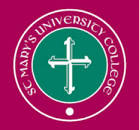The Postgraduate Certificate of Education (PGCE) is a recognised teaching qualification which affords graduates qualified teacher status. The PGCE (Irish-medium) at St Mary’s University College Belfast is a 36 week programme, designed to equip student teachers with the professional competences requi

Overview
The Postgraduate Certificate of Education (PGCE) is a recognised teaching qualification which affords graduates qualified teacher status. The PGCE (Irish-medium) at St Mary’s University College Belfast is a 36 week programme, designed to equip student teachers with the professional competences required to become an effective teacher.
It is a recognised bilingual programme for graduates who aspire to teach in an Irish-medium setting. In addition to the PGCE teaching qualification, successful students are also awarded a Certificate in Bilingual Education, reflecting their specialist Irish-medium competences.
Programme Aims
develop a range of professional competences
engage in informed debate about major issues in education and training
reflect in depth on theory/practice relationships within professional contexts
keep abreast of research, innovation and developments in education in general and Irish-medium education in particular
develop research skills.
History of St Mary’s University College
The origins of the College can be traced back to 1900 when the Dominican Sisters opened St Mary’s Training College on the present Falls Road campus with an enrolment of 100 women students.
For nearly 50 years after that, the college was concerned with the education of women students and their preparation for teaching in primary schools. In 1948, four-year courses for post-primary teachers were introduced.
By arrangement with Queen’s University, selected students could follow a combined course of university study and professional training. In 1949 a men's department was established at Trench House.
In 1961 it ceased to be the men's department of St Mary’s Training College and was constituted St Joseph’s Training College. In 1968 the Senate of Queen’s University granted St Mary’s and St Joseph’s recognition for the instruction of matriculated students of the university in courses leading to the degree of Bachelor of Education.
In the 1970s, however, there was a decline in teacher education when the government decided, in response to falling school enrolments, to reduce the supply of teachers, and the Catholic bishops decided to amalgamate St Mary’s and St Joseph’s.
The new college, called St Mary’s University College, came formally into existence in September 1985. From 1994 to 1996, a major programme of building and refurbishment was undertaken on the Falls Road campus.
In June 1996 Trench House closed its doors for the last time, and the entire College was relocated on the newly extended and enhanced Falls Road campus.
Mission
Our Vision and Values
The Christian ideal of education is based on love, solidarity, the common good, truth and justice. In our view, true education is a moral activity which has at its heart the fundamental worth of each person and the belief in a higher common good to which each belongs and through which each expresses her/his common God-given humanity.
Education is simultaneously a sacred and secular activity which is intrinsically linked to the process of becoming a fully human and spiritual being. It seeks a synthesis of competence and conscience.
The pursuit of academic excellence is a vital component, but so too is the affirmation of human dignity, the liberation of humankind from ignorance, and the empowerment of the marginalised.
Thus education is a creative and inspired activity through which we can fully realise our human attributes and help build a world in which all people come to share and experience their common humanity.
If, in practice, education is reduced to preparing individuals to compete in the labour market, it leaves people and communities completely ill-prepared for many of the major components of a well-balanced and fulfilling life, such as relationships, parenthood, vocation, community-building, self-expression, and recreation.
Education must not only prepare students for the world of work but for life in and for the community. The goal of an education founded on Christian values is therefore the formation and development of young people as communal beings living in harmonious relationship with self, others, God and the environment.
Such an education aims at nurturing in each individual a sense of self-esteem and a concern for others, rooted in the certainty of God’s love.
The true test of education is therefore how a student uses her or his gifts and talents, not falling prey to the possessiveness, individualism, fragmentation, consumerism and lack of caring that a purely secular, market-driven education can imbue, but becoming truly human and being socially responsible.
© 2025 coursetakers.com All Rights Reserved. Terms and Conditions of use | Privacy Policy